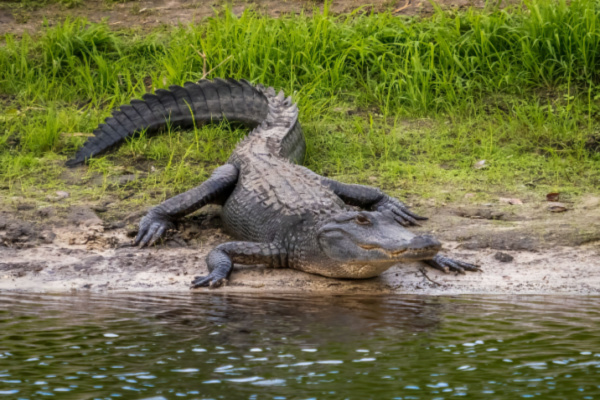Oregon State Police recently rescued an alligator that was being kept as a pet in Springfield.
The police posted about the alligator on social media and said it had apparently been a family pet for about 13 years. Possession of an alligator is prohibited by state law except by permitted wildlife rehabilitation centers and USDA licensed educational or research facilities.
The police reported that when they rescued the alligator, it was in poor health and was not being kept in adequate conditions. They noted that a healthy alligator’s palor can be dark green, dark brown or black in color, while the rescued gator was whitish color.
The discovery highlights the complex issues surrounding the ownership of exotic pets, a practice that, while intriguing to some, often leads to legal and ethical quandaries.
The Unfolding of an Unusual Rescue
The journey of this alligator from a domestic pet to a rescue case underscores the gap in public knowledge regarding the laws of exotic pet ownership. When the Springfield resident first welcomed the alligator into their home, they likely did not foresee the legal complications that would arise. It wasn’t until the intervention of the Oregon State Police that the owner was made aware of the state’s regulations prohibiting the possession of such creatures without a specific permit. This incident not only marks a turning point in the life of the alligator but also serves as a poignant reminder of the responsibilities that come with keeping exotic animals.
A New Home for the Misunderstood Reptile
Following its rescue, the alligator was transported to a rehabilitation center, an establishment vetted and approved by a veterinarian linked to the agriculture department. Here, in more appropriate living conditions, the alligator will spend its remaining years under the care of professionals. This transition to a new environment is a significant upgrade from its previous living situation, which was deemed inadequate for its needs. This case represents one of the few instances, as recalled by the Oregon Department of Fish & Wildlife, where an alligator has been seized in the state, making it a rare and noteworthy event in Oregon’s interaction with exotic wildlife law enforcement.
Legal Implications and Public Awareness
The legality of owning exotic pets varies significantly from one jurisdiction to another, with Oregon’s stance clearly forbidding the practice without a permit. Permits are typically granted only for specific purposes such as wildlife rehabilitation, education, or research, none of which applied in this case. This incident serves as a crucial wake-up call to individuals who might be considering or currently owning an exotic pet without fully understanding the legal and ethical implications. It underscores the importance of public awareness and education on the topic, advocating for the well-being of all creatures and respecting the laws designed to protect them.
Police ended the social media post on a lighter note: “Science tip: You can distinguish an alligator from a crocodile by paying attention to whether the animal sees you later or after a while #dadjokes”
—
Photo Credit: Jim Schwabel / Shutterstock.com
